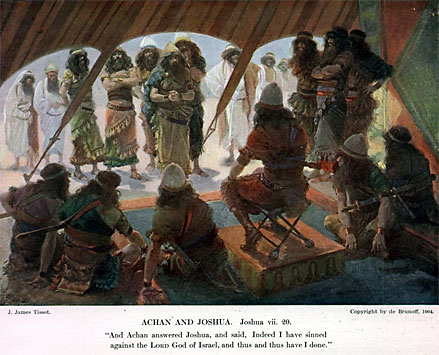The Myth of Scarcity
 There is an interesting article by Walter Brueggemann here. I particularly like his reference to idols as the ‘gods of scarcity.’
There is an interesting article by Walter Brueggemann here. I particularly like his reference to idols as the ‘gods of scarcity.’
However I think he misunderstands the account of Achan’s sin, or misconstrues it support his argument:1
Sabbath means that there’s enough bread, that we don’t have to hustle every day of our lives. There’s no record that Pharaoh ever took a day off. People who think their lives consist of struggling to get more and more can never slow down because they won’t ever have enough.
When the people of Israel cross the Jordan River into the promised land the manna stops coming. Now they can and will have to grow their food. Very soon Israel suffers a terrible defeat in battle and Joshua conducts an investigation to find out who or what undermined the war effort. He finally traces their defeat to a man called A’chan, who stole some of the spoils of battle and withheld them from the community. Possessing land, property and wealth makes people covetous, the Bible warns.
His interpretation of Achan’s sin is incorrect, because they were allowed to plunder in later conquests. Jericho was ‘holy war’ – a firstfruits that was devoted entirely to God. This is more complex than just plain old greed. Achan wasn’t covetous. He was impatient like Adam, which put Israel on the wrong side of the angelic swords. Obedience comes before glory.
The goal of faithful service is dominion. Misunderstand this and we fall prey to the guilt manipulators who want to spread the poverty around.
_______
1 I think he treats the Egyptian famine in the same way. The dream was sent by God, and Pharaoh’s reaction to it was actually wise, not greedy. Jordan is right when he says that using the Old Testament to moralise results in a lot of misinterpretation. There’s a lot more going on in these narratives than is immediately apparent.

























